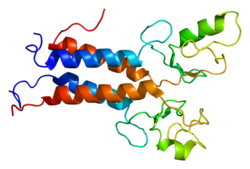Federal court hears gene patent appeal
 An appeal has begun in the Federal Court against a ruling that allows human genes to be patented by private companies.
An appeal has begun in the Federal Court against a ruling that allows human genes to be patented by private companies.
The appeal stems from a challenge which was dismissed in February, allowing one US-based and one Melbourne-based company to split the ownership of a naturally-occurring and hereditary breast cancer gene known as BRCA1.
In the February challenge; breast cancer survivor Yvonne D'Arcy argued the patent should be ruled out because the gene exists in nature and so was discovered, not invented. The court disagreed, saying that as the material had to be extracted from the body to be tested, the patent would stay. A five-judge panel is now hearing Ms D’Arcy’s appeal against the February ruling.
Rebecca Gilsenan, said the case had far-reaching consequences for research and genetic testing: “The crux of the appeal is that human genetic material is a product of nature. It's a discovery and therefore ought not be capable of attracting patent protection,” Ms Gilsenan said, “their motivation is to commercialise their research and keep whatever profits they can that might arise from that research. The downside of that is that the gene is not freely available for study or use by other organisations, corporations, researchers and so on.”
The case echoes a recent ruling in the United States, where nine judges found that genes extracted from the human body were not eligible to be patented, though no reference to the US case has been made in the Australian court.
Members of the biotechnology industry have raised concerns the case could stifle innovation and investment in important medical research by removing the profitability of genetic finds.








 Print
Print